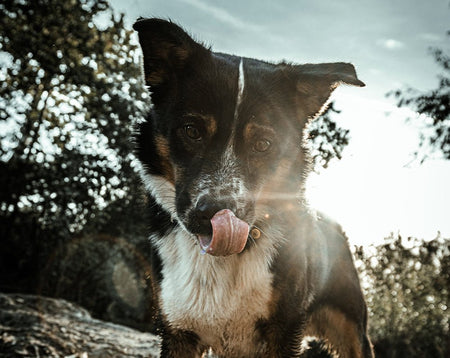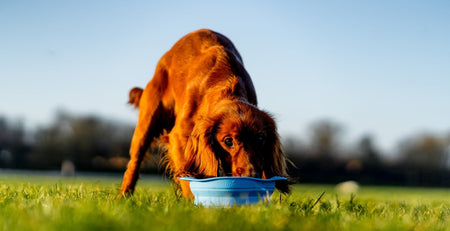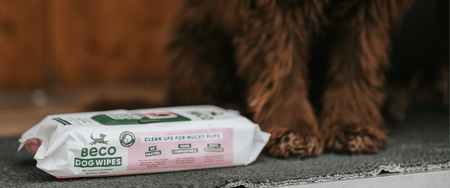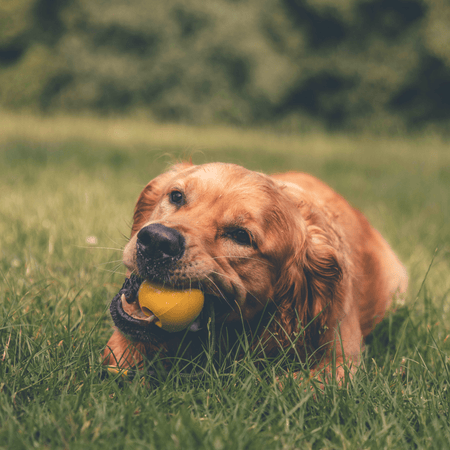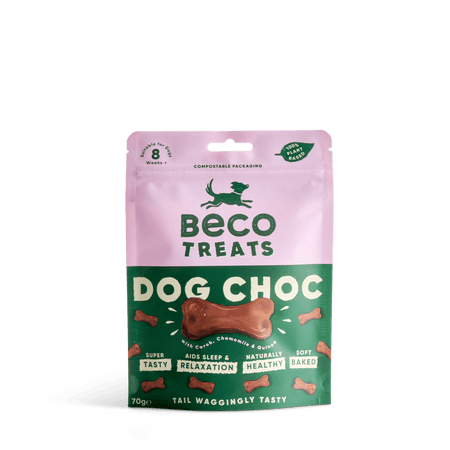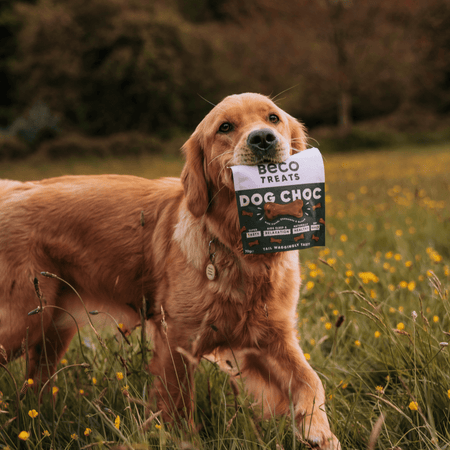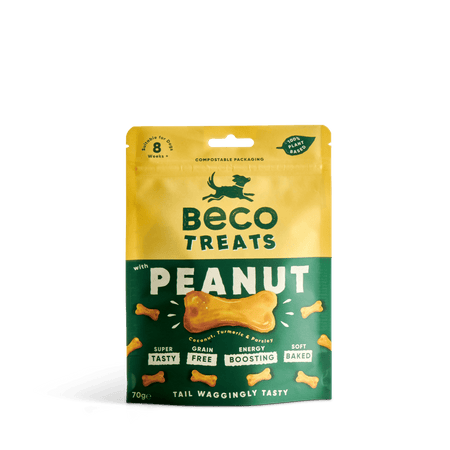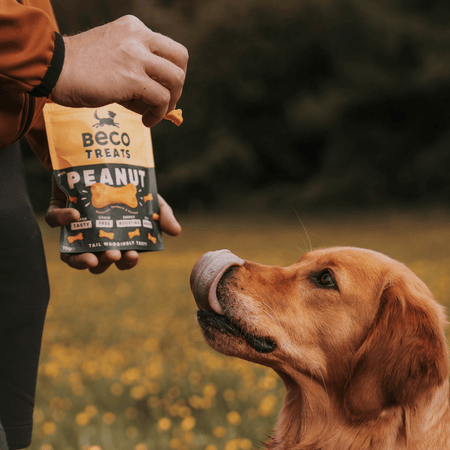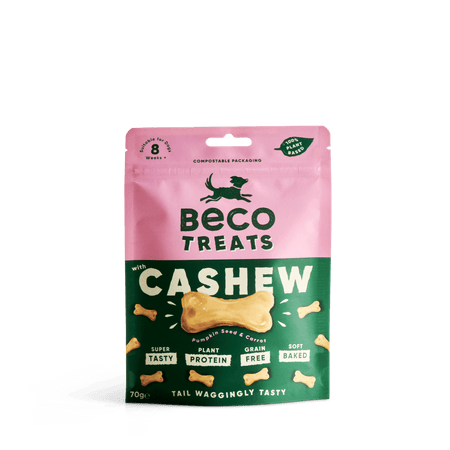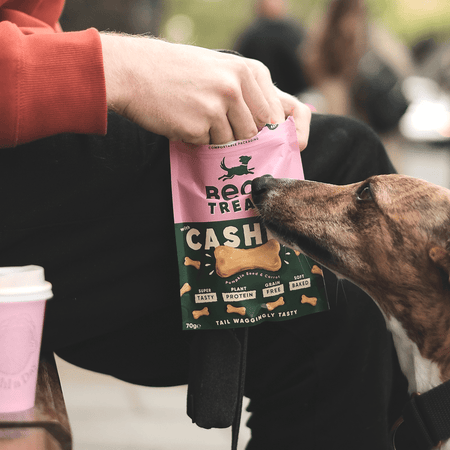Dogs can eat cheese, and in fact, most love to do so - particularly as a little treat every now and again. This dairy staple is as tasty to our canine companions as it is to us, however it’s best only fed in relatively small amounts given its comparatively high fat and salt content. Certain cheeses are better than others for dogs to eat, and some cheese varieties should be avoided altogether given the addition of other ingredients.
What cheese is best to give to dogs?
As with most foods to give to dogs, the plainer the better, and cheese is no exception to this. Cheeses with naturally lower fat and salt contents are ideal for feeding your dog, as are any cheese which feature lower lactose concentrations. Mozzarella, cottage cheese, swiss cheese and cheddar are all amongst the better cheeses to feed your dogs, though still should only be fed in moderation.
Can dogs eat blue cheese?
The main type of cheese to avoid feeding your dog is blue cheese. Blue cheeses (think Stilton, Roquefort and Gorgonzola) get their distinctive flavour profile (and smell) as a result of the blue-looking strains of mould that run through them.
Blue cheeses are made using a fungus called Penicillium roqueforti which dogs can sometimes be sensitive to. Other cheeses to avoid are those which have been flavoured in some way (with chilli, for instance) or those with the highest salt contents - feta and halloumi, for example.
Cheese is unsuitable for some dogs...
Not all dogs are suited to eating cheese; like us humans, some dogs are lactose-intolerant, for instance. This means they’ll have an adverse reaction to any dairy products, and not just cheese. Lactose-intolerance stems from an ability by the body to produce the enzyme lactase (which breaks down lactose) and symptoms within lactose-intolerant dogs can vary from the relatively mild - flatulence, through to the more severe - vomiting and lack of appetite.
Overweight dogs shouldn’t be fed cheese as even a small amount of this calorie-dense dairy product can make weight loss more difficult for a dog, and will more easily make them even more overweight. They might look at you with loving, pleading eyes, but that little cube of cheese might be doing more damage than you think.
If your dog has kidney problems, or has had them in the past, then you should avoid feeding them cheese, because of the food’s naturally high salt content; the kidneys, amongst other functions, regulate the body’s fluid and waste levels, and too high a salt content can affect their proper functioning.
Can puppies eat cheese?
Yes, puppies can eat cheese; it’s most easily incorporated into a puppy’s diet as a high reward training treat. If you’ve found your puppy training has plateaued recently, then it might be the case that your puppy doesn’t see the treats it’s being given as a high enough reward to warrant performing the command in question - in other words, you’ve got to make it worth their while.
Cheese is one of the most high-value rewards you can give a puppy, and you’ll be amazed at what a difference it can make in your training, moving forward. It’s important to remember, however, that treats should comprise no more than 10% of your dog’s daily diet, and given cheese’s caloric density, it doesn’t take too many cheese cubes to reach that 10% threshold, especially with smaller dog breeds and puppies.

An alternative to cheese cubes for training
An alternative to having cheese cubes (which you can’t feed too many of before risking overfeeding your dog) is to simply finely grate some cheese, place some in a ziplock bag, then give your dog a small pinchful at a time as a treat; this way, you can maximise the reward effect, whilst not having to worry as much about overfilling your dog up on cheese.
Using cheese to combat separation anxiety
Because cheese is so enticing to most dogs, it can be a good distraction to help your dog work through any separation anxiety it might be experiencing. The best way to do this is to find some low-sodium, reduced fat cheese which comes in a tube (that can be squeezed) which can be placed into a dog toy like a dog treat ball.
This will give them something fun to interact with whilst you’re out of the house, and will hopefully lead to a reduction in the separation anxiety felt by your pup.
Can dogs eat mozzarella sticks?
No, you shouldn’t feed a dog mozzarella sticks, as whilst the mozzarella itself is harmless in small quantities, the fried batter/breadcrumb coating will be high in fat, oil and salt, which is unhealthy for your dog, and will potentially upset its stomach.
Can dogs eat smoked cheese?
In moderation, there’s no reason why your dog shouldn’t be able to at least try smoked cheese; though the additional smoky component might warrant additional care and supervision in the 12-24 hours following feeding, just to make sure the cheese isn’t causing any constipation or diarrhoea.
Is cheese poisonous to dogs?
No! Cheese (provided you opt for the one of the cheeses we’ve recommended in this article) is a safe treat, so long as it’s fed in moderation, and avoid cheeses with anything else added into it (such as garlic or raisins) which themselves might be toxic or poisonous.
Final thoughts
Cheese is best used as only an occasional part of your dog’s diet, but even when only sparingly used, it makes a very helpful training aid for your dog - as well as just making a nice treat for them, anyway, which is always a bonus. Your dog’s diet should primarily consist of high-quality kibble or wet food, made from organic and natural ingredients, wherever possible.


